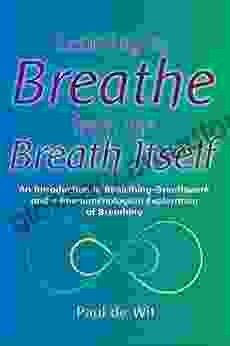Fundamentalism In Islam, Christianity, And Modern Thought: A Journey Through Perennial Philosophy

Fundamentalism is a term that is often used to describe a strict and literal interpretation of religious texts and beliefs. It is often seen as a response to the perceived challenges of modernity, such as secularism, rationalism, and the rise of scientific thought. Fundamentalism can be found in all major religions, including Islam, Christianity, and Judaism. In this article, we will explore the nature of fundamentalism in these three religions, and we will consider its implications for the human condition.
Fundamentalism In Islam
Islamic fundamentalism is a relatively recent phenomenon, dating back to the late 19th century. It is a response to the perceived threat of Western imperialism and the decline of traditional Islamic values. Islamic fundamentalists believe that the only way to restore Islam to its former glory is to return to the strict teachings of the Quran and the Sunnah. They often reject modern interpretations of Islam and call for the establishment of an Islamic state.
4.3 out of 5
| Language | : | English |
| File size | : | 1015 KB |
| Text-to-Speech | : | Enabled |
| Screen Reader | : | Supported |
| Enhanced typesetting | : | Enabled |
| Word Wise | : | Enabled |
| Print length | : | 146 pages |
There are many different strands of Islamic fundamentalism, ranging from the relatively moderate to the extreme. Some Islamic fundamentalists are willing to use violence to achieve their goals, while others believe that change can be brought about through peaceful means. However, all Islamic fundamentalists share a common goal of restoring Islam to its former glory.
Fundamentalism In Christianity
Christian fundamentalism is a similar phenomenon to Islamic fundamentalism. It is a response to the perceived threats of secularism and modernity. Christian fundamentalists believe that the only way to restore Christianity to its former glory is to return to the strict teachings of the Bible. They often reject modern interpretations of Christianity and call for the establishment of a Christian state.
There are many different strands of Christian fundamentalism, ranging from the relatively moderate to the extreme. Some Christian fundamentalists believe that the only true Christians are those who adhere to a strict interpretation of the Bible. Others believe that Christians should be involved in politics and work to establish a Christian state. However, all Christian fundamentalists share a common goal of restoring Christianity to its former glory.
Fundamentalism In Modern Thought
Fundamentalism is not limited to religion. It can also be found in other areas of thought, such as politics, philosophy, and science. In politics, fundamentalism can be seen in the rise of extreme right-wing and left-wing movements. In philosophy, fundamentalism can be seen in the rejection of postmodernism and the return to traditional metaphysics. In science, fundamentalism can be seen in the rejection of evolution and the belief in a literal interpretation of the Bible.
The rise of fundamentalism in modern thought is a response to the perceived challenges of modernity. It is a desire to return to a simpler time, when things were believed to be simpler and more certain. However, fundamentalism is a dangerous ideology that can lead to violence and intolerance. It is important to be aware of the dangers of fundamentalism and to work to promote tolerance and understanding.
The Implications Of Fundamentalism For The Human Condition
Fundamentalism has a number of implications for the human condition. First, it can lead to violence and intolerance. When people believe that they are the only ones who are right, they are often willing to use violence to impose their beliefs on others. This can lead to persecution, discrimination, and even war.
Second, fundamentalism can lead to a loss of freedom and individuality. Fundamentalists often believe that there is only one right way to think and act. This can lead them to suppress dissent and to punish those who do not conform to their beliefs. This can create a climate of fear and repression.
Third, fundamentalism can lead to a loss of critical thinking skills. Fundamentalists often believe that their beliefs are beyond question. This can lead them to reject new ideas and to refuse to consider alternative viewpoints. This can make it difficult for them to adapt to changing circumstances and to solve problems effectively.
Fundamentalism is a dangerous ideology that can have a number of negative consequences for the human condition. It can lead to violence, intolerance, a loss of freedom and individuality, and a loss of critical thinking skills. It is important to be aware of the dangers of fundamentalism and to work to promote tolerance and understanding.
References
* Fundamentalism * Fundamentalism * Fundamentalism
4.3 out of 5
| Language | : | English |
| File size | : | 1015 KB |
| Text-to-Speech | : | Enabled |
| Screen Reader | : | Supported |
| Enhanced typesetting | : | Enabled |
| Word Wise | : | Enabled |
| Print length | : | 146 pages |
Do you want to contribute by writing guest posts on this blog?
Please contact us and send us a resume of previous articles that you have written.
 Book
Book Novel
Novel Page
Page Chapter
Chapter Text
Text Story
Story Genre
Genre Reader
Reader Library
Library Paperback
Paperback E-book
E-book Magazine
Magazine Newspaper
Newspaper Paragraph
Paragraph Sentence
Sentence Bookmark
Bookmark Shelf
Shelf Glossary
Glossary Bibliography
Bibliography Foreword
Foreword Preface
Preface Synopsis
Synopsis Annotation
Annotation Footnote
Footnote Manuscript
Manuscript Scroll
Scroll Codex
Codex Tome
Tome Bestseller
Bestseller Classics
Classics Library card
Library card Narrative
Narrative Biography
Biography Autobiography
Autobiography Memoir
Memoir Reference
Reference Encyclopedia
Encyclopedia Paul Higgs
Paul Higgs Jane Romsey
Jane Romsey Natasha Vita More
Natasha Vita More Maggie Berg
Maggie Berg Ronald Kessler
Ronald Kessler Stephen R Covey
Stephen R Covey Jayme Dingler
Jayme Dingler Gina Troisi
Gina Troisi Garth W Paltridge
Garth W Paltridge Frank C Russell
Frank C Russell G Edward White
G Edward White George W Luther
George W Luther Victor Aldebaran
Victor Aldebaran Gail Omvedt
Gail Omvedt Lucy Fast
Lucy Fast Luka Natsume
Luka Natsume Richard Diver
Richard Diver Helen Brown
Helen Brown Friedrich Wilhelm Wellmer
Friedrich Wilhelm Wellmer Giovanni Pala
Giovanni Pala
Light bulbAdvertise smarter! Our strategic ad space ensures maximum exposure. Reserve your spot today!

 David Foster WallacePrivate Life, Professional Practice: A Guide for Mental Health Professionals
David Foster WallacePrivate Life, Professional Practice: A Guide for Mental Health Professionals Kendall WardFollow ·16k
Kendall WardFollow ·16k Craig BlairFollow ·3.1k
Craig BlairFollow ·3.1k Kelly BlairFollow ·6.6k
Kelly BlairFollow ·6.6k Ryan FosterFollow ·17k
Ryan FosterFollow ·17k Harvey HughesFollow ·3.1k
Harvey HughesFollow ·3.1k Gene PowellFollow ·11k
Gene PowellFollow ·11k Shaun NelsonFollow ·18.8k
Shaun NelsonFollow ·18.8k Joseph HellerFollow ·18.1k
Joseph HellerFollow ·18.1k

 Chinua Achebe
Chinua AchebeLetters to My Bipolar Self: A Journey of Hope, Healing,...
Bipolar disFree...

 John Parker
John ParkerLearning to Breathe from the Breath Itself: A...
In the whirlwind of modern life, finding...

 Beau Carter
Beau CarterExperiences In Psychoanalysis: A Journey into the...
Are you fascinated by the...

 George Hayes
George HayesExperiences Of The Neurological Condition Dystonia
Navigating the Labyrinth of a Complex...

 Jerome Powell
Jerome PowellOver 50 Keto Meal Prep Recipes: Your Essential Guide to...
Welcome to the world...
4.3 out of 5
| Language | : | English |
| File size | : | 1015 KB |
| Text-to-Speech | : | Enabled |
| Screen Reader | : | Supported |
| Enhanced typesetting | : | Enabled |
| Word Wise | : | Enabled |
| Print length | : | 146 pages |










